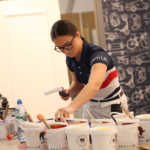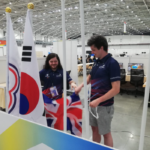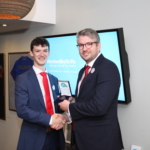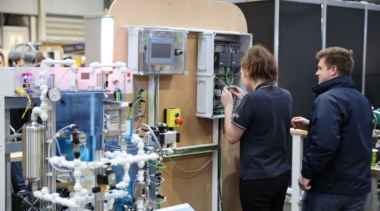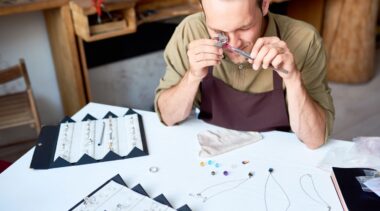Militsa Milenkova studied fine jewellery making at City of Glasgow College. She’s currently studying silversmithing and jewellery at the Glasgow School of Art and looking forward to the world of work, “I would like to find a job as a jeweller in a workshop so I can practice the skills I have gained throughout my education and feel more confident to then move on and become self-employed.”
Militsa knew from an early age that she was drawn to the more technical side of skills, “I have always been fascinated by tools and the functionality of objects. I guess my father’s career as a marine engineer sparked this interest in me from a young age. After I finished school, I studied interior and product design but that did not feel quite right. So, I decided to try something else and four years ago I did an internship at a jeweller’s workshop.”
The moment I picked up the blowtorch to solder my first piece of jewellery I knew I had found my calling.”
First finding out about WorldSkills UK Competitions from her college tutor Militsa was keen to join, “When I was in my first year at Glasgow City College my tutor and WorldSkills UK training manager David Finlay, asked whether we would be interested in getting involved with the competition. He specifically stated it would include a lot of practice and devotion to the subject and that sounded challenging so I was intrigued to try it out.”
Militsa was successful at the National Qualifiers in August 2021 and went on just a couple of months later to take part in the National Finals in November saying:
Unfortunately, I did not win a medal in the National Finals but I am not disappointed or discouraged by that. I am glad I took part in the competition and made it this far and I see how it has benefited me in many ways.
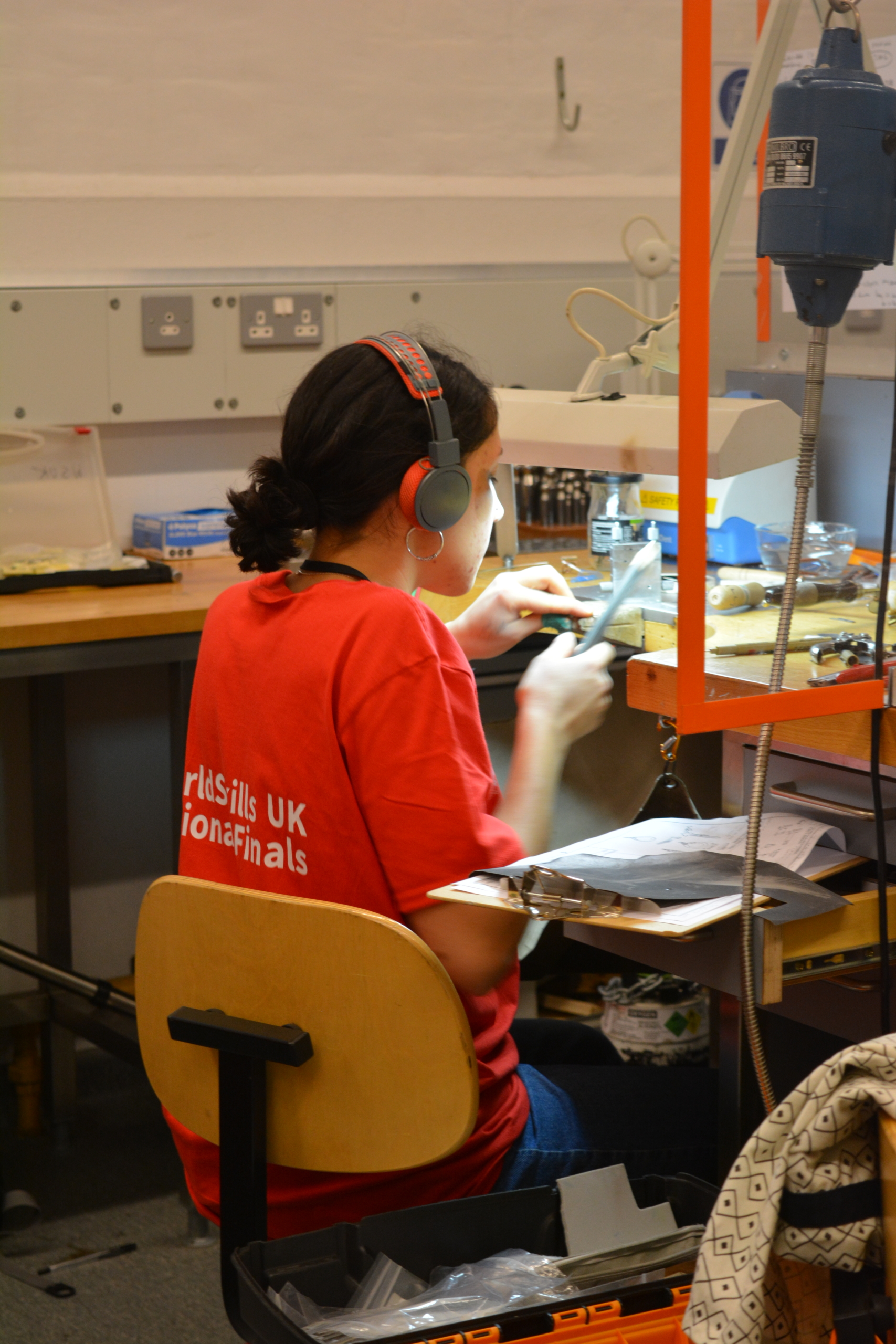
The experience of competing was a very positive one for Militsa who says, “There are a lot of things I loved about taking part. But if I had to choose one it would be that I had the chance to go through this intense journey among three very talented and supportive people. Two of my classmates who also competed in the National Finals and our trainer.”
Competitions stretch and challenge competitors across technical and essential skills and everyone’s experience is unique and Militsa says the biggest challenge for her was, “Managing the time I was given to complete the modules and staying calm when things did not go as expected. While I was competing, I realised that training had helped me become more resilient and able to stay focused on finishing the modules and overcoming any obstacles by fixing whatever goes wrong or starting again if needed.”
Aside from being a test of current knowledge and skills, many people find that the experience of competing is also a learning opportunity, “I’ve definitely learned that practice makes you better. Not only did my making skills improve but also my patience and ability to deal with a stressful situation and things going wrong. I have also become more confident in my abilities and I am no longer afraid of failing. It hasn’t been long since I took part in the competition but I already feel more self-assured and I believe this will be reflected in my work in the future.”
Militsa has lost no time in developing her skills even further beyond competing as she strives for excellence, “In jewellery making, it takes constant practice to keep your skills to a good standard and progress even further.”
For anyone thinking about entering a WorldSkills UK Competition Militsa’s advice is, “Go for it! It’s not an easy thing to do especially while studying and having many other ongoing responsibilities but it is undoubtedly an experience worth going through and you will learn a lot about your trade and yourself within it.”
Militsa believes apprenticeships and support should be open to wider age groups and not limited to only young people. “That would definitely help the numbers of apprentices rise as there are loads of people who are denied chances to learn and master a trade just because of their age. Another equally important thing I believe could be done is for educators to focus more on the practical application of technical skills rather than theoretical learning.”
